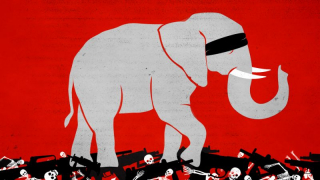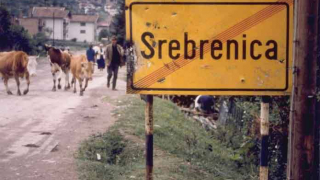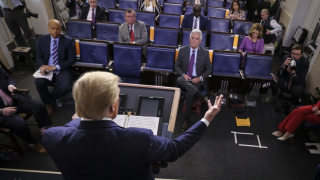Epistemicides vs Epistuicides: What are we missing in the decolonial movement?
Academia has always been political. On some occasions, it has been appropriated and deployed to meet political ends while in other occasions it has modelled itself to challenge politicisation. In their study of curriculum framework governing economics teaching in Brazilian higher education, Guizzo, et al (2021: 258) show how the idea of a pluralist education system is under threat from a “strong disciplinary, institutional and wider political pressures with both domestic and global roots”. Indeed, the threats towards education systems in the global South often have global as well as local origins. These days, the threat of epistemicides – that is the killing of a people’s knowledge – has displaced and suffocated academic spaces in the global South (de Sousa Santos 2016; Ndlovu-Gatsheni 2018). This killing has taken both subtle and unsubtle forms. One way this has happened has been through dominant and domineering western oriented knowledge production institutions and systems which disregard approaches and writings from the global South.
In this discussion, however, I will use the case of the University of Zimbabwe to show how domestic roots have also contributed towards the suffocation of academic spaces. I argue in this piece that epistemicides work together with epistuicides (see Kufakurinani 2022) – a process where a people kill their own knowledge systems. The twin evils of epistuicides and epistemicides have suffocated knowledge production in the global south. Indeed, the problem of a dominant western centric gaze has been a subject of examination by decolonial thinkers. Mainstream journals in many disciplines have been known to promote certain perspectives and specific research approaches at the expense of others. It is in this context that there has been a huge global movement to decolonise and decentre knowledge systems and knowledge production in many disciplines. Admittedly, decolonisation has become a buzz word over the years to the point of losing meaning. For me, decolonisation is simply about elevating alternative and at times rare voices and perspectives, particularly those from the global south. These voices and perspectives may be parallel or even contradictory to dominant perspectives and voices.
I trained as an economic historian at the University of Zimbabwe starting my undergraduate in 2001 and completing my PhD in 2015. Then the discipline was little known in the country even though a whole department was dedicated to the discipline since the mid-1980s. I was to later head this department from December 2016 to August 2019. The teaching and research in Economic History (EH) in the country were very close to mainstream history, the main difference being that unlike pure history, EH emphasised economic and social processes from the past while history went beyond to include personalities, politics and institutions, among other thematic areas. The courses from both departments ie. the department of History and the EH department were also similar. For example, where in the former there was a regional course on the History of West Africa, in the latter there was the Economic History of West Africa. From 2017, when I was chairperson, a university wide curriculum review was embarked on. Economic history took this opportunity to reformulate itself and this included introducing courses that spoke more to economic processes which were also thematic rather than regional. For example, we introduced courses on natural resources and development, gender in economic history and also introduced students to basic economics which was absent in the earlier curriculum. In addition, the new programme also had a whole year of industrial attachment that allowed students to get exposure to industry. The modules in the discipline increasingly spoke to discourses on sustainable economic development. We also extended our international networks embarking on MOUs with Lund University in Sweden and Ben Gurion University of the Negev in Isreal. From this period the discipline became popular among students. See student intakes below:

Source: Ushehwedu Kufakurinani “A Promising Start and Frustrating End: The Rise and Fall of the Economic History Department, University of Zimbabwe”, History in Africa, p. 1-12 (2022).
In 2020, under the guise of the so-called Education 5.0, changes were imposed by the University administration which included a new curriculum review (barely 4 years after we had taken another) and the merging of the Economic History Department and History Department to become the Department of History, Heritage and Knowledge Systems. Education 5.0, it was argued, added innovation and industrialisation to the usual functions of a university namely teaching, research and community engagement. I have always argued that this was splitting hairs. Innovation and industrialisation ought to simply have been given more emphasis as part of teaching, research and community engagement as no innovation and industrialisation could take place outside teaching, research and community engagement. The curriculum review process was cast in stone and literary a top-down approach. In many ways it mirrored the undemocratic political environment of the country. The Degree in Economic History, for example, was renamed BA Heritage and Economic History despite putting up a strong case for a degree in Economic History and Sustainable Development. The student intakes dropped tremendously (see above) and so did the confidence in the new discipline.
Conclusion: Let’s think epistuicides! Decoloniality in the global south
There were several other reforms which included merging and dissolution of programmes, disciplines and departments right across the university. What was common about these changes was that these were largely imposed on lecturers and students by university administration and had little buy-in from staff members. The result has been chaos in some instances and loss of moral. This, of course, has not been helped by the inflationary economic environment that has eroded the salaries of employees.as I have articulated in my article (2022), “A Promising Start and Frustrating End: The Rise and Fall of the Economic History Department, University of Zimbabwe” the University of Zimbabwe and how the institution has been run in the recent years is a classic case of epistuicide. Instead of elevating the rare voices and perspectives, it has suffocated and dismembered them. It is these internal dynamics that as scholars and activists of decoloniality we should also increasingly acknowledge and engage with.
The decolonial movement focuses largely at dismantling the dominant western gaze. The source of the problem is thus seen as exogenous – a force out there coming to suffocate systems and processes in the global south. However, if we are to take my initial definition of decolonisation as a process that seeks to elevate alternative and rare voices and perspectives, particularly those from the global south, then decolonisation is also about dealing with internal systems and processes, if they too have a negative bearing on efforts at elevating alternative voices and perspectives. Often, and rarely acknowledged in the framework of decolonial thinking, is that African institutions have also been at the centre of suffocating creativity and knowledge production in their spaces.
References
de Sousa Santos, Boaventura (2016) “Epistemologies of the South and the future”, From the European South, 1, 17-29
Guizzo, Danielle, Andrew Mearman & Sebastian Berger (2021) ‘TAMA’ economics under siege in Brazil: the threats of curriculum governance reform, Review of International Political Economy, 28:1, 258-281, DOI: 10.1080/09692290.2019.1670716.
Kufakurinani, U. (2022). A Promising Start and Frustrating End: The Rise and Fall of the Economic History Department, University of Zimbabwe. History in Africa, 1-12. doi:10.1017/hia.2021.20.
Ndlovu-Gatsheni, Sabelo. (2018). Epistemic Freedom in Africa: Deprovincialization and Decolonization. 10.4324/9780429492204.
Ushehwedu Kufakurinani is Research Fellow at King’s College London and University of Johannesburg, and Research Associate at University of Johannesburg and Great Zimbabwe University. He tweets at @ushehweduk.














